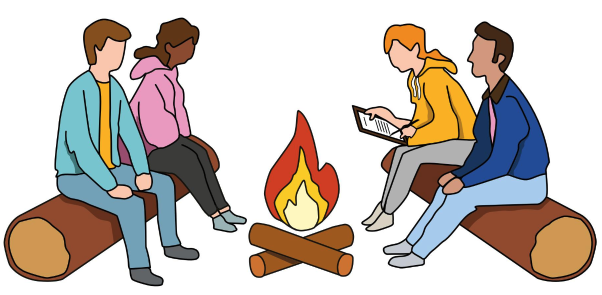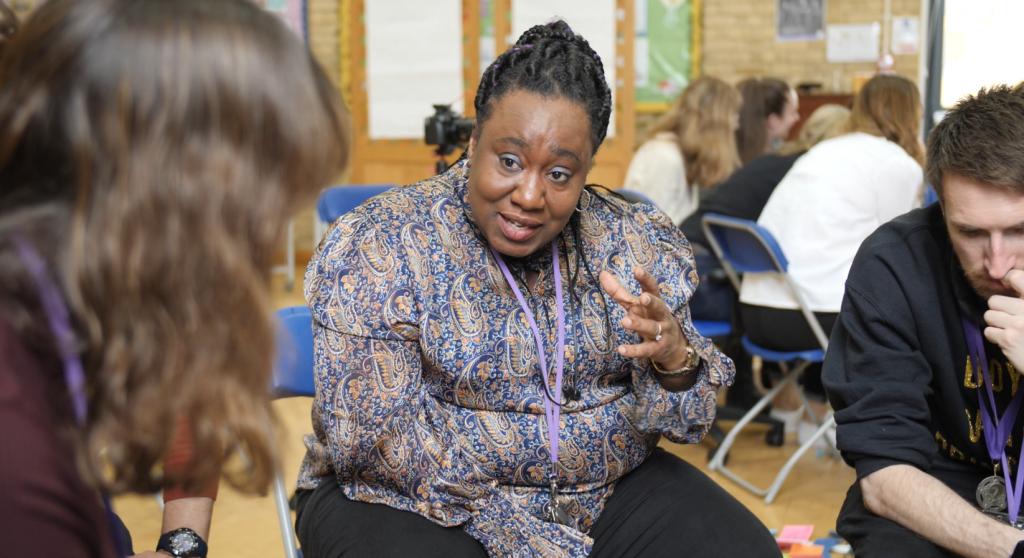How to Lead Profound Educational Change
Caitlin Ross and Caireen Goddard, Big Change
Have you looked at our traditional systems of education and thought, “Surely we can do better for young people?” Big Change is an organisation that is generating a national conversation around ten hopes for how we could do just that.
Gesher School caught up with Caireen Goddard and Caitlin Ross, who lead the impact team at Big Change, to hear about these hopes and what it might take to change the system.
Gesher
First of all, thanks for speaking to us today and for letting us hear about the hopes of Big Change. I’m going to dive straight in: What needs to change about the education system?
Caireen Goddard
When I came to Big Change I had spent a lot of time in and around the education system, including learning from educators in the UK and examples from around the world where people were doing things really differently. I recognised the frustration of people in our schools and local authorities who wanted to do things differently, and to support young people in different ways, but who had blockers put in their way or were under pressure to deliver against certain kinds of outcomes. There was, or is, a double tension of a narrowing focus from above together with a lack of autonomy or freedom to lead education in a way they thought was really needed for young people.
I think it boils down to two really key questions:
- What should be the purpose of education?
- Whatʼs really important for children and young people to learn – for themselves and for society?
Across 2021 we ran a Big Education Conversation where we asked these two questions. Most people we heard from agreed that we need to rethink the purpose of education and shift to a system where childrenʼs enjoyment of and engagement in learning is paramount.
Gesher
It sounds like thereʼs a real drive for change, but what should that change look like?
Caireen
Thatʼs right, we know thereʼs an appetite for change. And we think that ʻbig changeʼ would:
- Recognise that a one-size-fits-all model actually fits no-one.Even children who are ʻdoing wellʼ within the current system arenʼt satisfied with it because of the modes of learning and pressure from exams.
- Create an inclusive learning system that prepares all children well for the real world.
- Take a broader perspective on who our educators are. If we want our young people to learn skills that equip them for life, look at the degree to which the broader community,
employers, parents, and young people themselves are involved in the nature of learning provision.
Gesher
So, tell me more about Big Change and your hopes for changing the system?
Caitlin Ross
We want to be a catalyst for change by working with and through others. We want to learn from others and create the space for hope and ambition, and to disrupt the status quo. Our Ten Hopes, which have been published as a call to action to frame our work and invite others on the journey, have really resonated with a lot of people. Instead of getting caught up in how negative the system and all its problems can feel, we wanted to orientate towards the hopeful.
Gesher
With that in mind, how do you work with change-makers like Gesher?
Caitlin
I lead on our grantmaking work and was lucky enough to be part of Gesherʼs application process. Before we met today, I took a look back at their application to see what it was that stood out.
What we really liked, and what we would look for with change-makers, was the drive to challenge the status quo on what education is and how it can be delivered. We really liked their goal around ensuring that all pathways through education and into work are valued, and also:
- An ability to think outside the box about what traditional models of ʻsuccessʼ should be
- The ambition for young people with special educational needs and disabilities to have meaningful professional and wider lives
- The desire to convene everyone who will be supporting these young people at different stages of their lives
- Challenging common sense and really looking at what young people with SEND need to live rich, fulfilling lives
- The drive to bring other schools and professionals along with them on their learning journey. They really want all ships to rise with their tide and that is the perfect service we can provide for children.
Gesher
What advice would you give to Gesher, and others, when trying to implement change?
Caitlin
You need the right conditions to see these goals through. So, I would really say that you need:
• An ability to think about the whole system
• To be open to insights from elsewhere, all over the world
• To observe what you are learning and question yourself – to interrogate
• Be ambitious about the change you want to create with and for young people, while being humble enough to work collaboratively and learn from others
• To be strategically generous – donʼt hold on to your knowledge
• Recognise that you will always be learning.
Gesher
It feels like this could be quite a daunting challenge to take on. Whatʼs one thing people who want to lead change should think about?
Caireen
I donʼt think itʼs helpful to give the impression that any of this is straightforward or easy. Being a path-finder means you are taking a risk in the context of young people and their learning, which understandably isnʼt a hugely risk-inclined environment. I think itʼs about finding opportunities to do things differently and being confident to try new approaches. Looking to others for support and inspiration, both domestically and internationally, because we need real collaboration over competition.
Caitlin
I agree with that and would also say, donʼt just surround yourself with like-minded people. One way to create significant change over time is to collaborate and align with people who
have quite different views from you. Those unlikely alliances are really important, but like all partnerships they take a degree of willingness and trust to make happen, as well as humility.
Gesher
This has been fascinating. Just to end, do you have any final thoughts or advice you would like to give to Gesher or other change-makers?
Caireen
I would say that itʼs easy to lose sight of the quick wins, so celebrate the small successes!
Caitlin
I think having a clear vision of the change you want to create for and with young people and putting them at the centre of the work is really, really important to drive any change.
Caireen Goddard leads Big Changeʼs global insight network and their system change strategy in the UK, which is centred on Subject to Change, a new national project that will empower young people and the public to set a new direction for learning. For over 20 years Caireen has worked on learning, strategy, networks and innovation projects with schools, local authorities, charities, various national and global bodies, and central government.
Caitlin Ross leads on the identification, funding and support of pioneering project partners. She also leads on Big Changeʼs impact strategy, making sure that they gather the insights needed to keep growing and learning, both as a charity and as a funder. Caitlin has a frontline background in microfinance and in youth work, working on the ground with organisations in Europe, Africa and the Caribbean. She brings her experience delivering scalable, impact-focused interventions to Big Changeʼs grant giving and impact work to support pioneers who are helping young people to thrive in life.
Professional Prompt Questions
- What would you want life to look like in 20 yearsʼ time for the children you teach and how well are current schooling practices preparing them?
- What would you choose to assess if you set up an education system that prepared children to be good citizens?
- Who do you view as educators of children and young people?
- How do you raise all the ships around you when you are gaining knowledge and trialling new educational approaches?
- Who do you look to for ideas?



